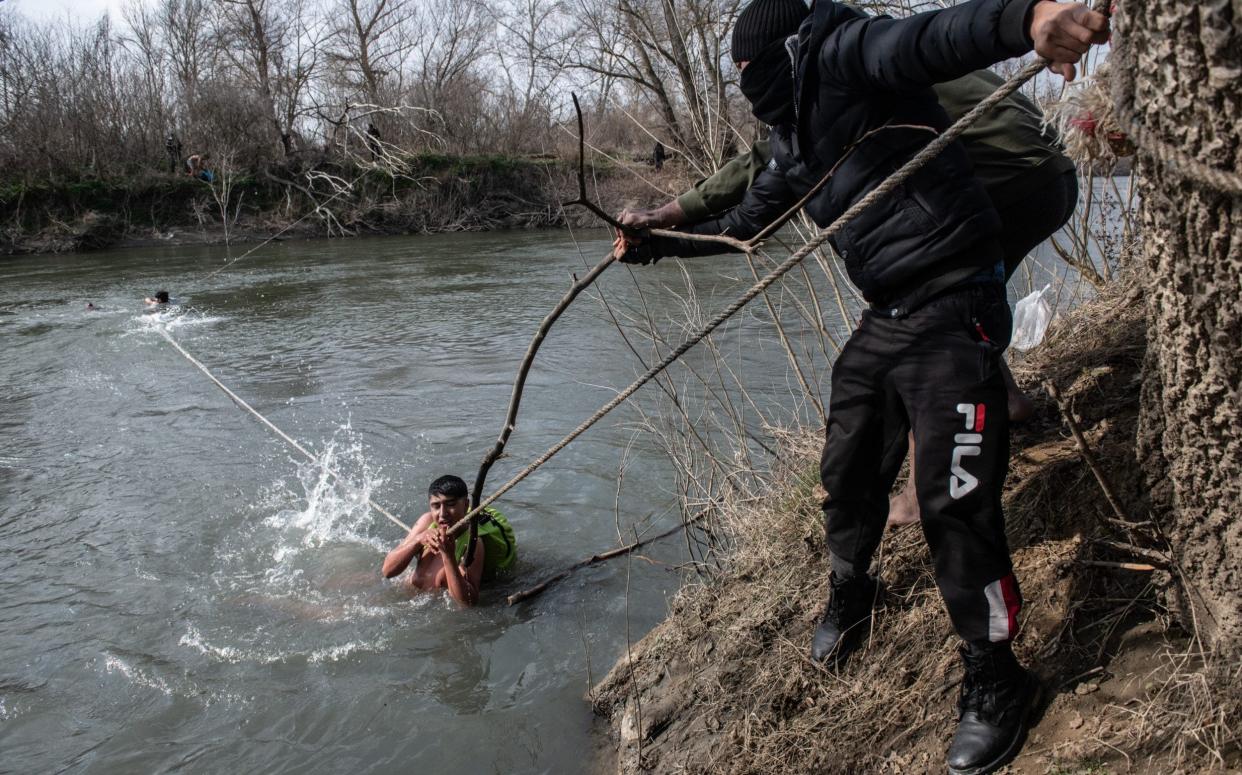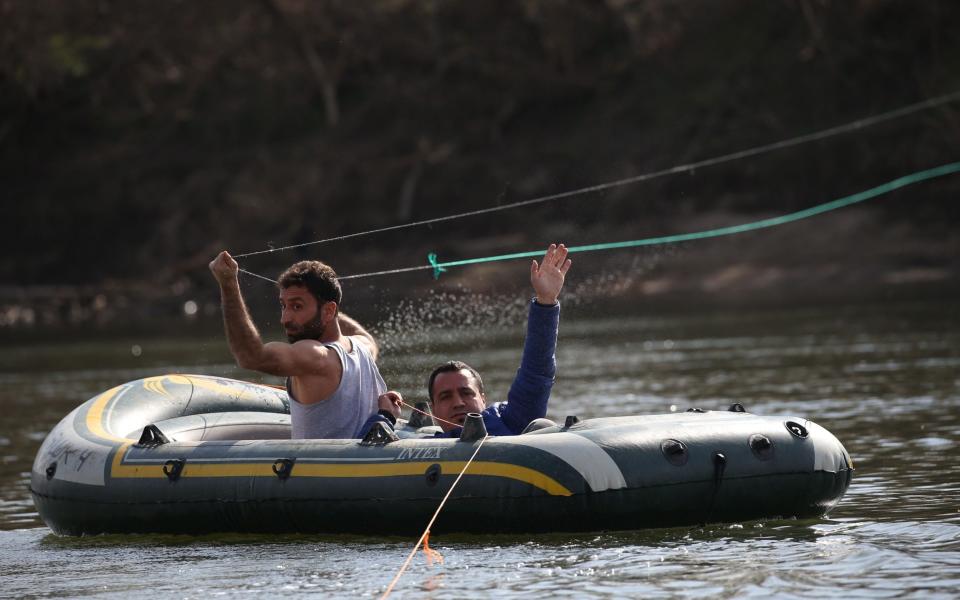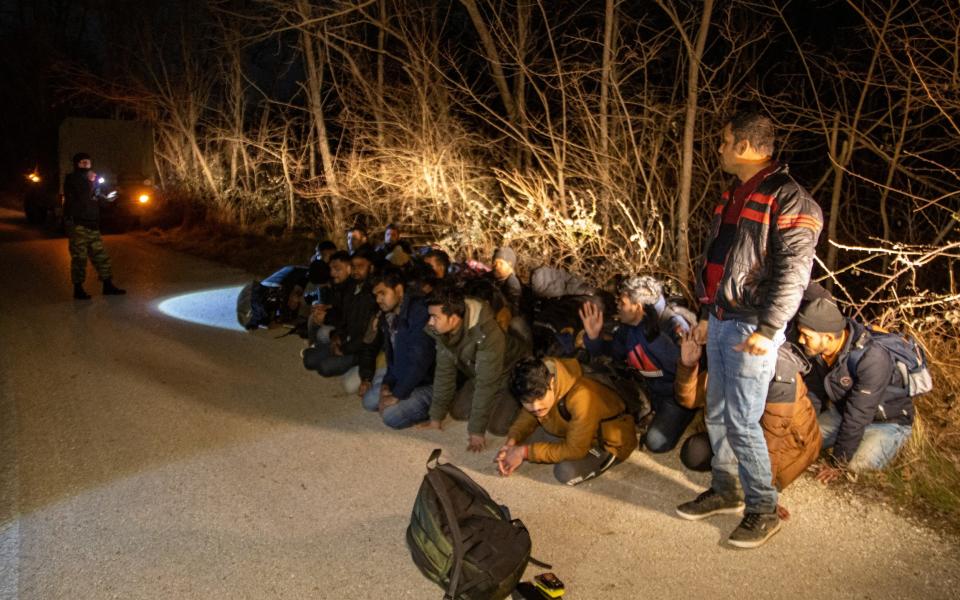Greece using 'slave' migrants to push other migrants back over the border with Turkey

Migrants are being forcibly recruited as “slaves” by Greek police to push other migrants back across the border with Turkey, an investigation has found.
The claims add a sinister new twist to the policy of illegal “pushbacks” that the Greek authorities have been accused of pursuing along their land and sea frontiers with Turkey.
Migrants who make it across the Evros River, which forms part of Greece’s land border with Turkey, are being offered a grim choice – collaborate with the police and take part in violent pushbacks of fellow asylum seekers or face prison.
If they choose to collaborate, then they are forced to transport other migrants back across the river in inflatable dinghies, according to a months-long investigation by Le Monde, Der Spiegel, The Guardian, ARD Report München and Lighthouse Reports, an NGO based in the Netherlands.
Using such proxies reduces the risk of potentially violent confrontations between Greek and Turkish authorities.

The publications found six Syrian and Moroccan asylum seekers who said they had taken part in pushback operations under duress.
In return, the Greek police allegedly gave them permission to remain in Greece for another month.
Two of the migrants said they were effectively being used as “slaves” by the Greek police.
Two senior Greek police officers confirmed that migrants were being used in such a way, according to the joint investigation.
One Syrian man, identified as “Bassel”, said the work was not paid but Greek police gave him permission to search through intercepted migrants’ possessions and steal what he wanted.
“This work is very dangerous, also because of the enmity between the Greeks and the Turks,” he said.
At one Greek police station, in the border village of Neo Cheimonio, the migrants who had been dragooned into working for the police were under the command of a Syrian gangmaster who called himself ‘Mike’.
Sporting a tattoo of a Spartan helmet, he lived in the grounds of the police station and would use threats and violence to steal migrants’ valuables, in particular gold jewelry.

The migrants forced to work for the Greek authorities are kept locked up in between pushback operations, it is alleged.
“The ‘slaves’ said they worked alongside regular police units to strip, rob and assault refugees and migrants who crossed the Evros river into Greece — they then acted as boatmen to ferry them back to the Turkish side of the river against their will,” said Lighthouse Reports.
“Between operations the slaves are held in at least three different police stations in the heavily militarised Evros region.”
The policy of pushbacks violates European and international human rights law. Under the principle of “non-refoulement”, people cannot be returned to a country where they would face torture, punishment or harm.
The Greek government has consistently denied that it carries out pushbacks but that contradicts evidence gathered by human rights organisations and journalists.
“Greece protects the external borders of the European Union, in full compliance with international law and in full respect of the charter of fundamental rights,” the minister of migration and asylum said earlier this year.
Athens argues that most of the asylum seekers heading for its shores are not at any risk in Turkey.
On Monday, the Greek coast guard said it had prevented more than 1,000 migrants and refugees crossing to its islands in the Aegean in the space of three days.
The coast guard said it had turned back boats in 24 separate incidents involving an estimated 1,130 people, near five Aegean Sea islands. Most of the interceptions took place off Lesbos.

 Yahoo Movies
Yahoo Movies 
